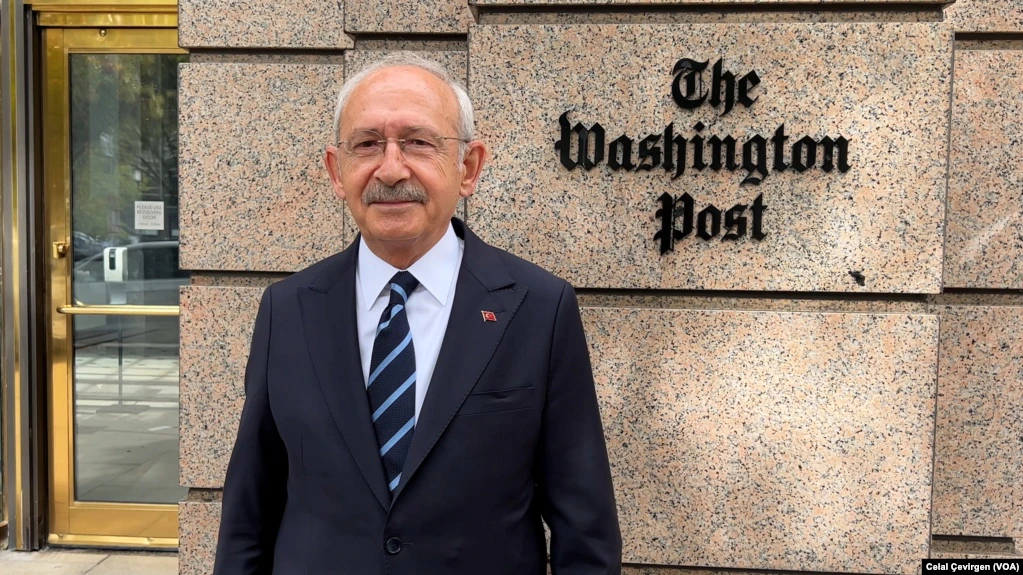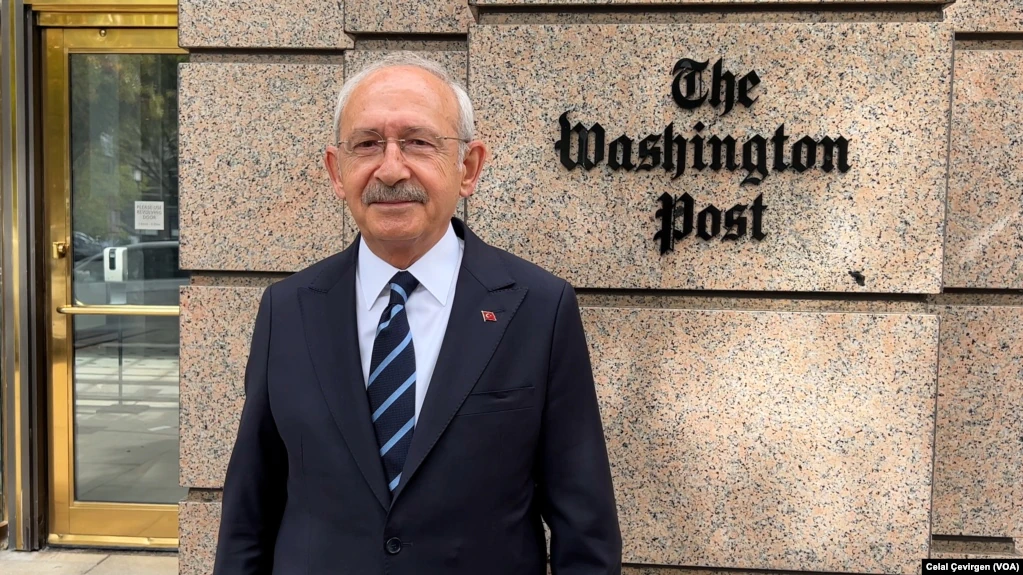Address
304 North Cardinal St.
Dorchester Center, MA 02124
Work Hours
Monday to Friday: 7AM - 7PM
Weekend: 10AM - 5PM
Address
304 North Cardinal St.
Dorchester Center, MA 02124
Work Hours
Monday to Friday: 7AM - 7PM
Weekend: 10AM - 5PM


The leader of Turkey’s main opposition party, Kemal Kılıçdaroğlu, has visited the United States between 9-13 October 2022. Accompanied by prominent members of the Republican People’s Party (CHP), Kılıçdaroğlu went to Boston, New York and Washington, D.C respectively where he met with a number of Turkish academicians, including the physicist Canan Dağdeviren and economist Daron Acemoğlu. Significantly, Kılıçdaroğlu has paid a visit to Washington Post, where he offered his condolences for the murder of Saudi journalist Jamal Khashoggi, who had been killed in Saudi Arabia’s Istanbul consulate. Even though he expressed his plans to meet with a number of human rights organizations, think tanks, and union leaders in the U.S, Kılıçdaroğlu has explicitly stated that he had rejected offers to meet with U.S policymakers during his visit.
The visit had the potential to be an important milestone for the Turkish opposition as a whole and for Kılıçdaroğlu personally, especially considering the fact that he is currently the most likely unified candidate of the “table of six” to face President Recep Tayyip Erdogan in the upcoming presidential and parliamentary elections. It was an opportunity for Kılıçdaroğlu to meet with the main political actors in the U.S and introduce himself and the opposition as a viable actor for the post-Erdogan era. These hopes, however, were not realized.
Kılıçdaroğlu deliberately chose to frame his visit as a “non-political” event, possibly because he was wary of the negative propaganda that would come from the government side, portraying him to be seeking the backing of American policymakers for his presidency. It was, it may be argued, a rather shortsighted move on his part. The fact that Kılıçdaroğlu went out of his way to emphasize the “non-political” nature of his visit to the U.S demonstrates the fact that even though he presents himself as the most likely candidate for the opposition, he cannot break out of the narrow political framework the limits of which Erdogan continues to draw. In any case, despite all the care he took, the pro-government media in Turkey still insinuated that Kılıçdaroğlu’s visit was an illegitimate move and a Western-backed conspiracy to topple the Erdogan government. It must also be remembered that Erdogan had paid a visit to President George Bush on 10 December 2002, when he had no official title other than being the leader of Justice and Development Party (AKP). Seen through this light, it would have been more productive for Kılıçdaroğlu to disregard the possible attacks coming from his opponents and establish more concrete ties with relevant figures in the American political scene during his trip to the United States.
Meanwhile, refusing to meet with the U.S policymakers, Kılıçdaroğlu has also missed the opportunity to lay out a clear foreign policy agenda both for his domestic and international audience in case he is elected as Turkey’s next leader. The opposition in general and Kılıçdaroğlu in particular have repeatedly been criticized for not demonstrating a strong grasp of Turkey’s future foreign policy objectives. One of the key promises of the “table of six” is to (re)establish a strong parliamentary system, which would uphold rule of law and democratic principles. Therefore, it may not be too far-fetched to argue that, foreign policy priorities of the table of six and Kemal Kılıçdaroğlu in the post-Erdogan era would entail closer relationships with the European Union and the United States. At this point, however, it cannot go further than being a guess.
Overall, then, it may be argued that Kılıçdaroğlu has missed a valuable opportunity to present himself and the Turkish opposition as a strong alternative in the post-Erdogan era during his visit to the United States while also failing once again to lay out a clear-cut plan for Turkey’s future role in the international arena.